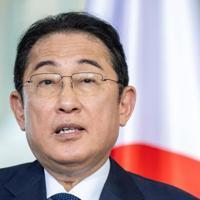Tokyo
Japan’s prime minister apologized Wednesday to victims of the now-repealed Eugenic Protection Law, which forced thousands of people into forced sterilization between 1948 and 1996.
“The government’s responsibility as the enforcer of the Eugenic Protection Law is extremely heavy,” Kishida Fumio said at his Tokyo office.
“On behalf of the government, I offer my sincere apologies,” he said, bowing to the victims.
Kishida also promised new measures to help victims receive compensation on top of the 3.2 million yen (about $20,000 in today’s value) awarded in 2019 that activists said was too little.
The apology came after the country’s Supreme Court ruled on July 3 that the law was unconstitutional and that a 20-year statute of limitations preventing some victims from receiving compensation could not be applied.
The government apologised in 2019 and acknowledged that around 16,500 people, including those with mental or physical disabilities, were forcibly sterilised under a law aimed at “preventing the birth of inferior offspring”.
Another 8,500 people were sterilized with their own consent, but lawyers say the pressures they faced likely meant they were effectively coerced.
A 1953 government notice stated that physical restraints, anesthesia and even “deception” might be used in the operation.
This dark chapter in Japan’s history was brought into the spotlight again in 2018 when a woman in her 60s sued the government over the surgery she underwent when she was 15, sparking a wave of similar lawsuits.
Following the Supreme Court ruling, a cross-party group of lawmakers has begun considering new compensation, aiming to submit a bill to the Diet by the end of the year, Jiji Press reported.



